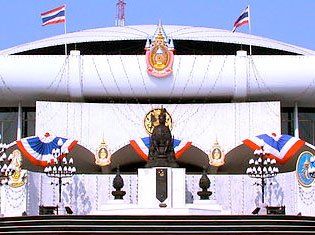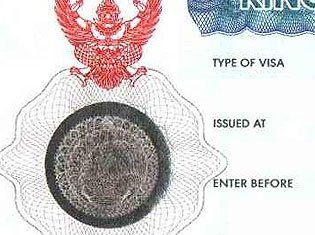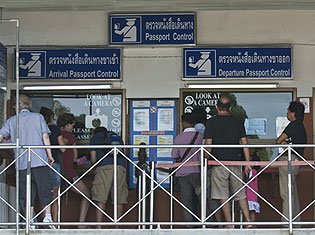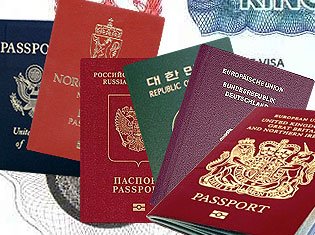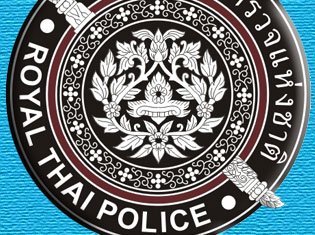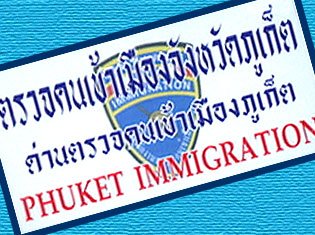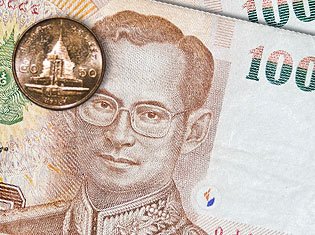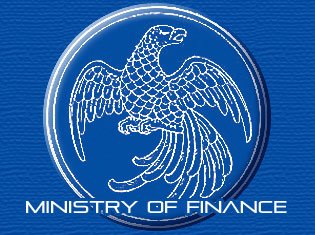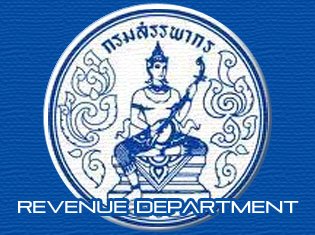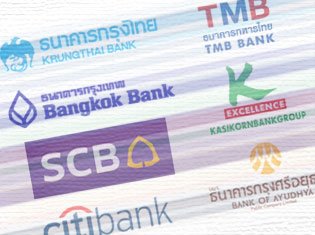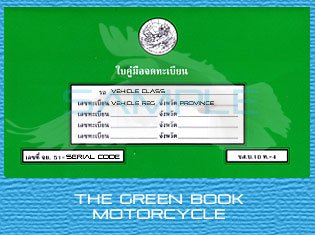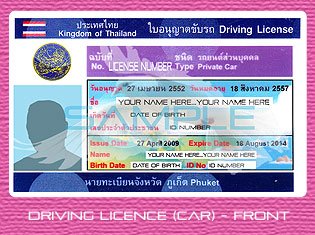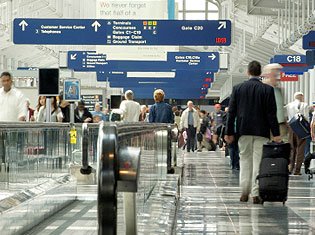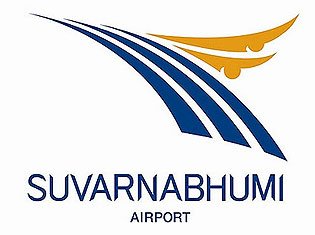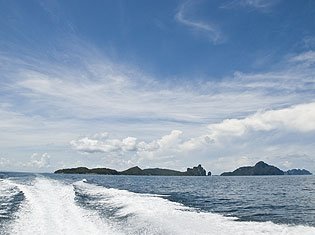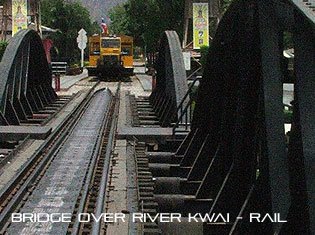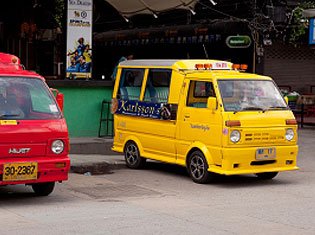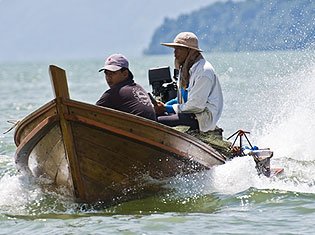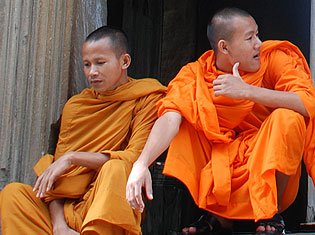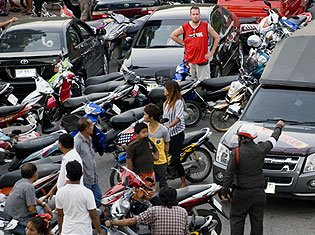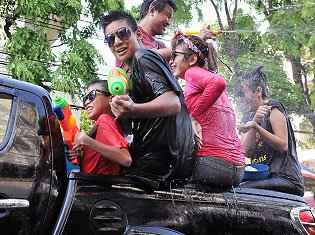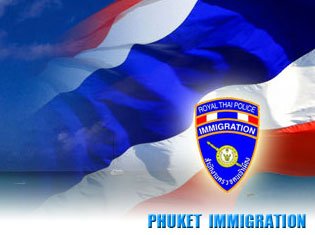
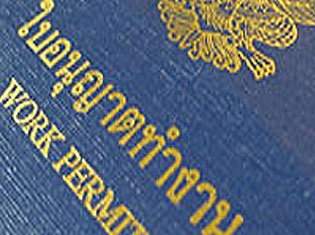
Employment
Working Requirements
Any foreigner wishing to work in Thailand in whatever capacity, paid or voluntary must have a work permit from the Department of Employment, Ministry of Labour. Diplomats, foreigners working for the United Nations and certain international agencies are not suvject to this rule.
The Ministry of Labour's definition of work is "to engage in work by exerting energy or using knowledge whether or not in consideration of wages or other benefits" Punishments for those ignoring this law include fines, imprisonment and deportation from Thailand. Any employer ignoring this law can also be imprisoned and/or fined.
The relevant law relating to Work Permits and employment in Thailand for foreigners is the Foreign Employment Act (2008). Below is the list of occuptations foreigners are not allowed to do.
The Ministry of Labour's definition of work is "to engage in work by exerting energy or using knowledge whether or not in consideration of wages or other benefits" Punishments for those ignoring this law include fines, imprisonment and deportation from Thailand. Any employer ignoring this law can also be imprisoned and/or fined.
The relevant law relating to Work Permits and employment in Thailand for foreigners is the Foreign Employment Act (2008). Below is the list of occuptations foreigners are not allowed to do.
Restricted occupations:
• Manual work
• Work in agriculture, animal husbandry, forestry or fishery excluding specialized work in each particular branch or farm of supervision
• bricklaying, carpentry of other construction work
• wood carving
• driving mechanically-propelled carried or driving non-mechanically-propelled vehicle, excluding international aircraft piloting
• shop attendance
• auctio
• supervising, auditing or giving services in accountancy excluding internal auditing on occasions
• cutting of polishing jewellery
• haircutting, hairdressing or beauty treatment
• cloth weaving by hand
• weaving of mats or making products from reeds, rattan, hemp, straw or bamboo pellicle
• making of Sa paper by hand
• lacquerware making
• making of Thai musical instruments
• nielloware making
• making products from gold, silver or gold-copper alloy
• bronzeware making
• making Thai dolls
• making mattress of quilt blanket
• alms bowls casting
• making silk products by hand
• casting Buddha images
• knife making
• making paper or cloth umbrellas
• shoemaking
• hat-making
• brokerage or agency excluding brokerage or agency in international trade business
• engineering work in civil engineering branch concerning designing and calculation, organization, research, planning, testing, construction supervision or advising excluding specialized work
• architectural work concerning designing, drawing of plan, estimation, construction directing or advising
• garments making
• pottery or ceramic ware making
• cigarette making by hand
• guide or conducting sightseeing tours
• street vending
• type-setting of Thai characters by hand;
• drawing and twisting silk-thread by hand
• office of secretarial work
• legal or lawsuit services
• Work in agriculture, animal husbandry, forestry or fishery excluding specialized work in each particular branch or farm of supervision
• bricklaying, carpentry of other construction work
• wood carving
• driving mechanically-propelled carried or driving non-mechanically-propelled vehicle, excluding international aircraft piloting
• shop attendance
• auctio
• supervising, auditing or giving services in accountancy excluding internal auditing on occasions
• cutting of polishing jewellery
• haircutting, hairdressing or beauty treatment
• cloth weaving by hand
• weaving of mats or making products from reeds, rattan, hemp, straw or bamboo pellicle
• making of Sa paper by hand
• lacquerware making
• making of Thai musical instruments
• nielloware making
• making products from gold, silver or gold-copper alloy
• bronzeware making
• making Thai dolls
• making mattress of quilt blanket
• alms bowls casting
• making silk products by hand
• casting Buddha images
• knife making
• making paper or cloth umbrellas
• shoemaking
• hat-making
• brokerage or agency excluding brokerage or agency in international trade business
• engineering work in civil engineering branch concerning designing and calculation, organization, research, planning, testing, construction supervision or advising excluding specialized work
• architectural work concerning designing, drawing of plan, estimation, construction directing or advising
• garments making
• pottery or ceramic ware making
• cigarette making by hand
• guide or conducting sightseeing tours
• street vending
• type-setting of Thai characters by hand;
• drawing and twisting silk-thread by hand
• office of secretarial work
• legal or lawsuit services
Work Permit Conditions
Foreigners have to comply with conditions set out by the Director General of the Department of Employment to obtain a work permit under the Act, the exception being when a foreigner is permitted entry to work in Thailand under the Investment Promotion Act or other laws.
The current conditions came into force on 8 October 2004 but applications received prior to 8 October 2004 will be considered under the conditions in effect prior to this date.
The current conditions by which a work permit can be granted include, but are not limited to:
1. For foreigners working for an employer that has paid up registered capital of at least Baht 2 million, for every Baht 2 million in paid up registered capital one permit can be issued.
For foreigners working for a foreign juristic person carrying on business in Thailand that has invested money from abroad not less than Baht three million, for every Baht 3 million one permit can be issued. Where a foreign juristic person that entered Thailand to carry on business prior to October 30, 2002 has no evidence of bringing in money from abroad, consideration shall be based on the size of the investment indicated in bank statements for the last six months. Where the total amount is Baht three million or more, for every Baht three million one permit can be issued.
If the foreigner has a Thai spouse and the marriage is registered under the law and the couple cohabitate openly as husband and wife, the investment required per permit shall be reduced by one half.
A maximum of ten foreigners may be granted a work permit under the above conditions, except as may be appropriate in any of the following cases:
• Working for an employer who has paid at least Baht 3 million in income tax to the government in the past year.
• Working with an employer in the export business that has brought not less than Baht 30 million in foreign currency into the country in the past year.
• Working with an employer in the tour business that has brought not less five thousand foreign tourists to Thailand in the past year.
• Working for an employer that employs at least 100 Thai nationals.
2. For foreigners working for an employer that has paid up registered capital of at least Baht 2 million or a foreign juristic person carrying on business in Thailand that has invested money from abroad not less than Baht three million, in any of the following cases the limitations above regarding the number of foreigners shall not apply.
Foreigners using technology in their work that Thai people are unable to do or where the domestic labor market cannot meet the demand, whereby the technology shall be transferred to at least two Thai people within the prescribed period.
Foreigners working by applying specialized knowledge and skills for work to be accomplished within a definite period of time.
Foreigners working in the entertainment, theatrical or music business, where the work is occasional and for a definite period of time.
3. Foreigners working for a foundation, association or any other organization whose objectives are non-profit making and in the interests of the society as a whole.
4. Foreigners working for a representative office of a foreign company engaged in international trade may obtain work permits under the following conditions:
For giving advice in various aspects about the goods of the head office distributed to an agent or user, dissemination of various information about the goods or services of the head office and the reporting of business movements in Thailand to the head office: A maximum of two foreigners is permitted.
For sourcing goods or services in Thailand, quality control of goods that the head office buys or employs to produce in Thailand: A maximum of five foreigners may be permitted except in the case where the representative office can source goods or service for the head office to purchase and the head office has ordered goods or services from producers in Thailand with a value of not less than Baht 100 million in the past year.
5. The regional office of a foreign multinational can receive permission to employ not more than 5 foreigners unless the regional office has brought not less than 10 million into Thailand to meet expenses in the last year. The regional office must meet conditions similar to the rules for establishing a regional office contained in Regulations of the Office of the Prime Minister 1992.
6. Foreigners working for the government, a state enterprise or public organization.
7. For foreigners entering Thailand to work in financial institutions under the supervision of the Bank of Thailand or the Ministry of Finance or government agencies that supervises financial institutions, permission shall be granted according to the number allowed in the certificate issued by the relevant authority.
The current conditions came into force on 8 October 2004 but applications received prior to 8 October 2004 will be considered under the conditions in effect prior to this date.
The current conditions by which a work permit can be granted include, but are not limited to:
1. For foreigners working for an employer that has paid up registered capital of at least Baht 2 million, for every Baht 2 million in paid up registered capital one permit can be issued.
For foreigners working for a foreign juristic person carrying on business in Thailand that has invested money from abroad not less than Baht three million, for every Baht 3 million one permit can be issued. Where a foreign juristic person that entered Thailand to carry on business prior to October 30, 2002 has no evidence of bringing in money from abroad, consideration shall be based on the size of the investment indicated in bank statements for the last six months. Where the total amount is Baht three million or more, for every Baht three million one permit can be issued.
If the foreigner has a Thai spouse and the marriage is registered under the law and the couple cohabitate openly as husband and wife, the investment required per permit shall be reduced by one half.
A maximum of ten foreigners may be granted a work permit under the above conditions, except as may be appropriate in any of the following cases:
• Working for an employer who has paid at least Baht 3 million in income tax to the government in the past year.
• Working with an employer in the export business that has brought not less than Baht 30 million in foreign currency into the country in the past year.
• Working with an employer in the tour business that has brought not less five thousand foreign tourists to Thailand in the past year.
• Working for an employer that employs at least 100 Thai nationals.
2. For foreigners working for an employer that has paid up registered capital of at least Baht 2 million or a foreign juristic person carrying on business in Thailand that has invested money from abroad not less than Baht three million, in any of the following cases the limitations above regarding the number of foreigners shall not apply.
Foreigners using technology in their work that Thai people are unable to do or where the domestic labor market cannot meet the demand, whereby the technology shall be transferred to at least two Thai people within the prescribed period.
Foreigners working by applying specialized knowledge and skills for work to be accomplished within a definite period of time.
Foreigners working in the entertainment, theatrical or music business, where the work is occasional and for a definite period of time.
3. Foreigners working for a foundation, association or any other organization whose objectives are non-profit making and in the interests of the society as a whole.
4. Foreigners working for a representative office of a foreign company engaged in international trade may obtain work permits under the following conditions:
For giving advice in various aspects about the goods of the head office distributed to an agent or user, dissemination of various information about the goods or services of the head office and the reporting of business movements in Thailand to the head office: A maximum of two foreigners is permitted.
For sourcing goods or services in Thailand, quality control of goods that the head office buys or employs to produce in Thailand: A maximum of five foreigners may be permitted except in the case where the representative office can source goods or service for the head office to purchase and the head office has ordered goods or services from producers in Thailand with a value of not less than Baht 100 million in the past year.
5. The regional office of a foreign multinational can receive permission to employ not more than 5 foreigners unless the regional office has brought not less than 10 million into Thailand to meet expenses in the last year. The regional office must meet conditions similar to the rules for establishing a regional office contained in Regulations of the Office of the Prime Minister 1992.
6. Foreigners working for the government, a state enterprise or public organization.
7. For foreigners entering Thailand to work in financial institutions under the supervision of the Bank of Thailand or the Ministry of Finance or government agencies that supervises financial institutions, permission shall be granted according to the number allowed in the certificate issued by the relevant authority.
Visas for Work Permits
Foreigners wishing to take up employment in Thailand must enter Thailand on a non-immigrant visa and then apply for a work permit and relevant category of visa.
There are various categories of non-immigrant visa currently available to suit the needs and qualifications of individual business people.
These include the business visa (category B), the most common visa used to apply for work permits, and yjr investment and business visa (category IB) for foreigners working under investment projects promoted by the Board of Investment.
Non-Immigrant visas can be obtained from all Thai Embassies and Consulates provided that the relevant documents are submitted.
There are various categories of non-immigrant visa currently available to suit the needs and qualifications of individual business people.
These include the business visa (category B), the most common visa used to apply for work permits, and yjr investment and business visa (category IB) for foreigners working under investment projects promoted by the Board of Investment.
Non-Immigrant visas can be obtained from all Thai Embassies and Consulates provided that the relevant documents are submitted.
Validity of Work Permits
A work permit is normally issued for one year and can be renewed on a annual basis. If the duration of employment is less than one year, a work permit will be granted only for the period requested. Two year work permits are available in certain circumstances and at extra cost.
A work permit validity cannot exceed the the visa's "permit to stay"validity.
Foreigners residing in Thailand for more than 90 consecutive days are required to register their address with the Immigration Bureau every 90 days. This requirement applies to all foreigners, including holders of work permits and long-term visas if you are not required to leave Thailand every 3 months.
A work permit validity cannot exceed the the visa's "permit to stay"validity.
Foreigners residing in Thailand for more than 90 consecutive days are required to register their address with the Immigration Bureau every 90 days. This requirement applies to all foreigners, including holders of work permits and long-term visas if you are not required to leave Thailand every 3 months.
Renewal of Work Permits
An application for renewal of a work permit must be submitted before the expiration date of a valid work permit. If a work permit has expired, another application must be completed for a new work permit.
If a work permit is not granted or extended, or is not allowed for a change of work or location, the applicant is entitled to appeal the decision to the Minister of Labour and Social Welfare within 30 days. A decision will be rendered within 60 days.
If a work permit is not granted or extended, or is not allowed for a change of work or location, the applicant is entitled to appeal the decision to the Minister of Labour and Social Welfare within 30 days. A decision will be rendered within 60 days.
Necessary and Urgent Work
A foreigner who is permitted to enter Thailand temporarily under the immigration law in order to engage in work which is necessary and urgent for a period not longer than fifteen days does not require a work permit. The foreigner can commence work only after he has notified the Director General of the Department of Employment or his entrusted official in writing in the form prescribed by the Director General. Guidelines have been issued to define work that is necessary and urgent.






